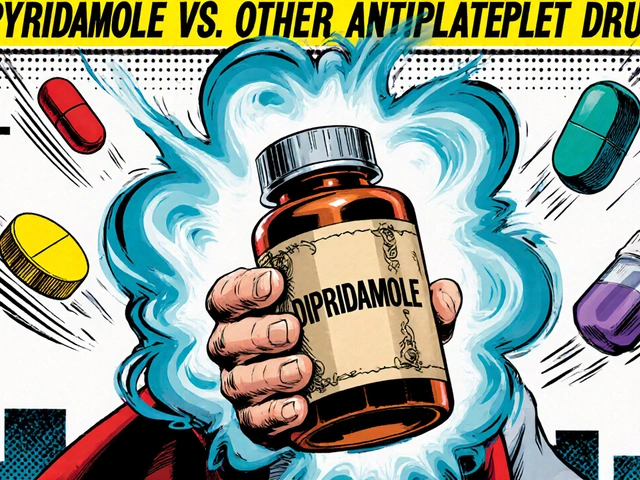Dry Mouth Oral Care Routine: Step‑by‑Step Guide for a Comfortable Smile
Learn how to build a dry‑mouth‑friendly oral care routine that protects teeth, reduces discomfort, and keeps your smile healthy.
If your mouth feels sticky or you keep reaching for water, you might be dealing with xerostomia, also called dry mouth. It’s not just uncomfortable—it can make it harder to chew, talk, and keep teeth healthy. The good news is that a regular routine can keep the problem under control. Below are easy, everyday actions you can start right now to boost saliva and protect your mouth.
Water is your best friend. Keep a bottle at your desk and sip throughout the day rather than gulping a large glass once. Aim for at least eight cups of fluid daily, but adjust if you’re active or live in a hot climate. Limit drinks that dry you out, such as coffee, tea, soda, and alcohol. When you do enjoy them, have a glass of water right after. Food matters, too. Crunchy fruits and vegetables like apples, carrots, and celery stimulate saliva flow. On the flip side, salty snacks, spicy sauces, and citrus can irritate a dry mouth, so use them sparingly.
Good brushing habits are a must. Use a soft‑bristled toothbrush and fluoride toothpaste twice a day. Replace your toothbrush every three months to avoid bacterial buildup. Choose an alcohol‑free, fluoride mouthwash; alcohol can strip the remaining moisture. Chewing sugar‑free gum or sucking on sugar‑free lozenges after meals helps trigger saliva production. If natural methods aren’t enough, over‑the‑counter saliva substitutes—sprays, gels, or rinses—can give quick relief. Make sure any product you pick is labeled for dry mouth, not just regular oral care.
Beyond the bathroom, small environmental tweaks can make a big difference. A bedroom humidifier adds moisture to the air, which reduces mouth dryness while you sleep. Try to breathe through your nose instead of your mouth; a simple tape strip or nasal saline spray can help keep the airway open. Review any medications with your doctor or pharmacist, because many prescriptions list dry mouth as a side effect. Sometimes a dosage change or a different drug can solve the issue without extra routines.
When should you see a professional? If you notice frequent sore throats, trouble swallowing, persistent bad taste, or sudden tooth decay, schedule an appointment. Your dentist can check for early damage and may suggest prescription‑strength saliva boosters. A doctor can rule out underlying conditions like diabetes or autoimmune diseases that often cause dry mouth. Remember, a routine works best when it’s part of a broader health plan, so keep the conversation open with your healthcare team.
Learn how to build a dry‑mouth‑friendly oral care routine that protects teeth, reduces discomfort, and keeps your smile healthy.

The COVID-19 pandemic caused widespread drug shortages and made illegal drugs deadlier due to fentanyl contamination. Millions faced delays in essential medications while overdose deaths surged, exposing deep flaws in healthcare and drug supply systems.

Heavy menstrual bleeding on blood thinners affects 70% of women on these medications. Learn proven, safe treatments like the levonorgestrel IUD, tranexamic acid, and switching anticoagulants-without risking dangerous clots.

A detailed guide comparing dipyridamole with aspirin, clopidogrel, ticagrelor, prasugrel, warfarin and heparin, covering mechanisms, dosing, side effects, interactions, and best-use scenarios.

Hey guys, I've recently come across this online pharmacy, canshipmeds.com, and thought it would be great to share my thoughts on it. I've looked extensively into their services, the quality of their medicinal products, and overall online shopping experience. To help you make a well-informed decision next time you need medical supplies online, stay tuned for this comprehensive review and evaluation.

Learn where to find affordable generic doxycycline, how to verify safe online pharmacies, dosage tips and legal considerations in a clear, step‑by‑step guide.
